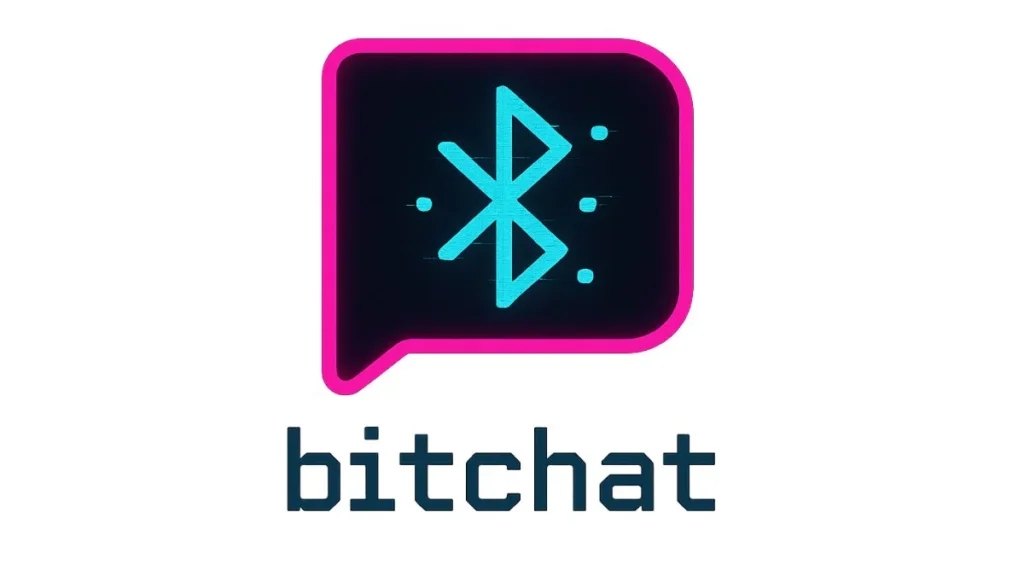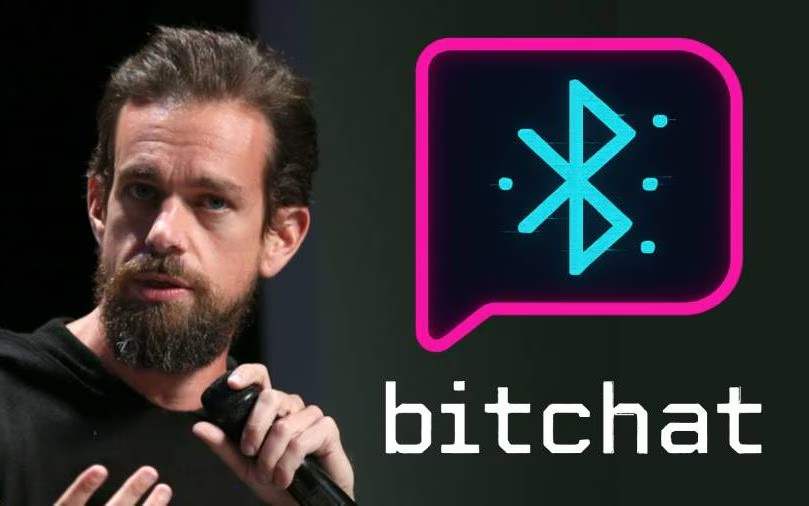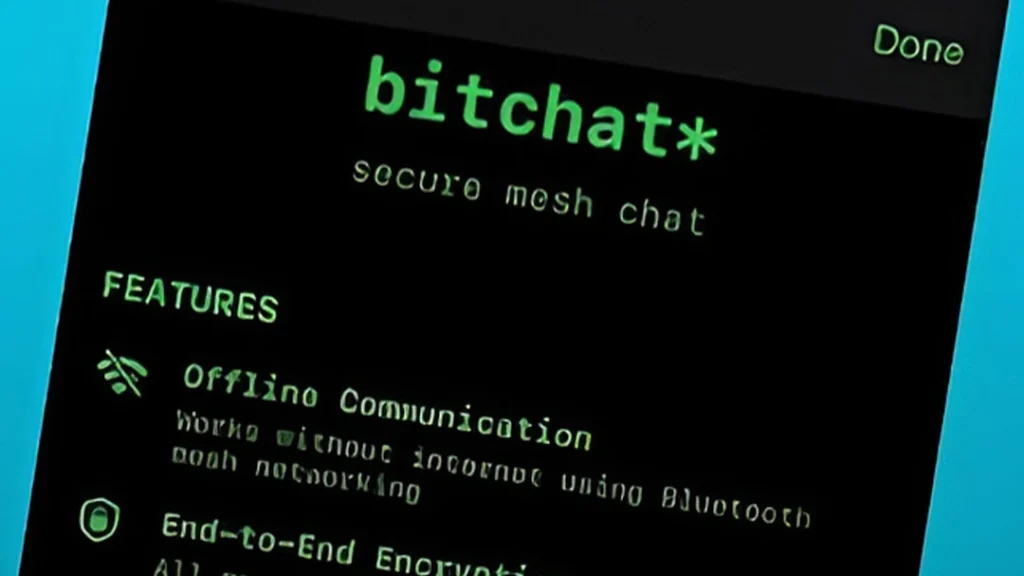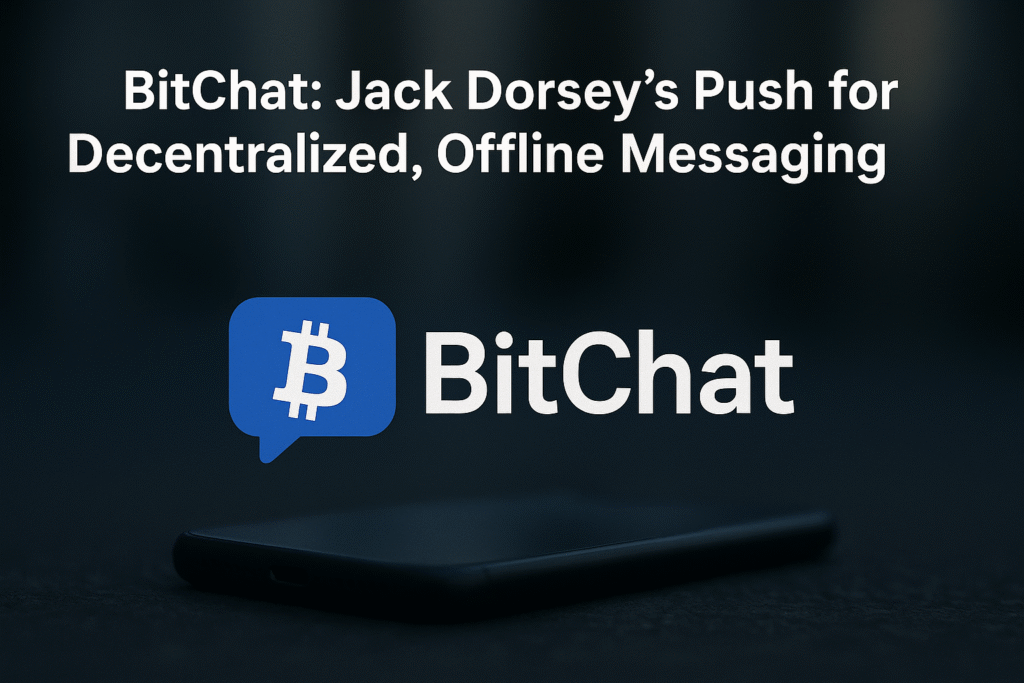In today’s hyper-connected world, messaging apps have become an extension of ourselves silent carriers of our thoughts, plans, and daily chatter. Yet, what happens when that connectivity vanishes? When governments suppress access, natural disasters strike, or you simply find yourself in a no-signal zone? That’s where BitChat enters the picture a revolutionary, peer-to-peer messaging platform founded by Jack Dorsey that functions without the need for Wi-Fi, mobile networks, or central servers.
Unveiled on July 7, 2025, BitChat goes far beyond the standard messaging experience. Still in its highly exclusive iOS beta (with Android support on the horizon), this app challenges conventional communication systems by enabling decentralized, encrypted messaging even in the complete absence of internet infrastructure.
How BitChat Works: Harnessing the Power of Mesh Networking
Unlike popular chat platforms such as WhatsApp or Telegram that route messages through cloud servers, BitChat embraces a decentralized, serverless model. It relies entirely on Bluetooth Low Energy (BLE) mesh networking, turning smartphones into a local, self-sustaining web of communication.
Here’s how BitChat’s system functions:
- Peer Discovery: When BitChat is launched, it begins scanning for nearby devices also running the app. These connections are formed over Bluetooth, not cellular data or Wi-Fi.
- Direct Transmission: Rather than passing messages through the cloud, BitChat delivers them device-to-device.
- Mesh Routing: If the intended recipient is out of direct range, your message will “hop” through nearby BitChat users. Each phone acts as both a sender and a relay, creating a chain that can stretch over hundreds of meters when enough participants are nearby.
- Store-and-Forward System: If someone is temporarily unreachable, your message gets cached on intermediary devices and delivered once the recipient returns to range.
This distributed system removes the need for any centralized oversight. Your communications are confined within the local network of participating users, making it resistant to surveillance, outages, and data interception.
Privacy at the Core: BitChat’s Security Architecture
BitChat is built on the foundation of user privacy and data sovereignty. It avoids the pitfalls of modern messaging apps by refusing to collect any identifiable data. Here’s a closer look at the security technologies behind it:

- End-to-End Encryption (E2EE): Whether in private chats or public channels, messages are encrypted from sender to recipient using industry-grade standards like X25519 + AES-256-GCM for private exchanges and Argon2id + AES-256-GCM for group messages.
- Ephemeral Identity: There are no accounts, no phone numbers, and no emails. Every time you open the app, a new anonymous peer ID is generated, ensuring you leave behind minimal trace.
- Automatic Key Rotation: Cryptographic keys used to encrypt messages are rotated frequently, reducing exposure in case of any compromise.
- Message Lifespan Control: By default, messages exist only temporarily on devices. Channel owners, however, can choose to retain conversations as needed.
- Cover Traffic Generation: To foil traffic analysis, BitChat deliberately sends decoy messages and introduces random delays. This makes it difficult to distinguish real communication from noise.
- Emergency Wipe Feature: With a simple triple-tap on the app’s logo, users can instantly erase all local data crucial in high-risk or hostile environments.
- Fully Offline Operation: Since it doesn’t rely on internet access or cloud servers, BitChat offers resilience against censorship, surveillance, and centralized shutdowns.
User Experience and Advanced Capabilities
Despite being early in its development, BitChat delivers a surprisingly robust feature set tailored for privacy-conscious and off-grid communication:

- Channel-Based Group Chats: Much like IRC, users can create public or password-protected group discussions around topics. Channel owners can manage access and control whether messages are stored.
- Classic Text Interface Commands: Chat commands such as /j #channel to join, /m @user for private messaging, and /who to see online peers make it familiar for those used to terminal-based chat systems.
- Performance Optimization: The app uses LZ4 compression to reduce message size and bandwidth usage. Multiple power modes from ultra-low to high performance ensure balanced Bluetooth scanning and battery life.
- Cross-Platform Compatibility: Currently available for iOS and macOS, an Android version is actively in development, promising broader adoption in the near future.
- Dynamic Routing and Caching: The underlying mesh protocol constantly re-evaluates message routes and caches undelivered messages for offline users, ensuring resilience.
The design focuses on speed, simplicity, and effectiveness leaving out unnecessary features that could compromise security or user privacy.
Where BitChat Truly Shines: Use Cases That Matter
BitChat isn’t aiming to be your go-to for daily banter across continents. Instead, it excels in high-stakes or connectivity-challenged environments:
- Emergency and Disaster Response: In scenarios where infrastructure is down be it earthquakes, floods, or wildfires BitChat allows for local coordination without internet dependency.
- Activism and Protest Zones: In countries where digital censorship is rampant, BitChat enables secure and anonymous communication, even under internet blackouts.
- Rural, Remote, and Off-Grid Areas: Campers, hikers, and people in underserved rural regions can use BitChat to stay in touch without relying on mobile networks.
- Large Crowds or Events: During festivals, protests, or sports matches where mobile towers are overwhelmed, BitChat offers a reliable alternative.
- Free Speech and Anti-Censorship: With no central server to block, it’s inherently more resistant to shutdowns and content regulation.
Challenges and Development Hurdles
While BitChat introduces an exciting communication paradigm, it isn’t without limitations:
- Range and Density Dependence: Mesh networking requires enough nearby users to be effective. Without sufficient density, communication may break down.
- Not Internet-Scale Yet: Global messaging isn’t currently feasible. Messages can’t reach distant users unless there’s a continuous chain of relays between them.
- Battery Usage: Although optimized, continuous Bluetooth operation can still drain battery, particularly with frequent scanning and message relaying.
- Still in Beta: As a fresh project, BitChat is evolving rapidly. Bugs and instability are expected, and a third-party security audit has not yet been completed a crucial step before broader adoption.
- User Habits: Shifting people away from polished, feature-rich apps like Telegram and Signal will take time, especially for a tool tailored for specific use cases.
A Bold Step Into the Future of Private Communication

BitChat isn’t just an app it’s a vision for a freer, safer digital world. At a time when internet freedom is under threat and centralized platforms dominate the conversation, BitChat reimagines how we connect: offline, encrypted, and entirely peer-driven.
Jack Dorsey’s project is a quiet rebellion against surveillance capitalism and network fragility. It empowers users to communicate directly with one another, free from infrastructure, identifiers, or oversight. While still in its early days, the app’s potential is clear: a communication tool that respects privacy, thrives in adversity, and adapts to the needs of those who need it most.
As BitChat matures, its influence on decentralized and censorship-resistant communication could reshape how we connect during critical moments and well beyond.
If you found this information helpful, don’t forget to subscribe to Jatininfo.in. We’ll keep bringing you more Update/tech-related Blogs like this one. Your support is our strength.
If you found this information useful, don’t forget to share it with your friends and family.














